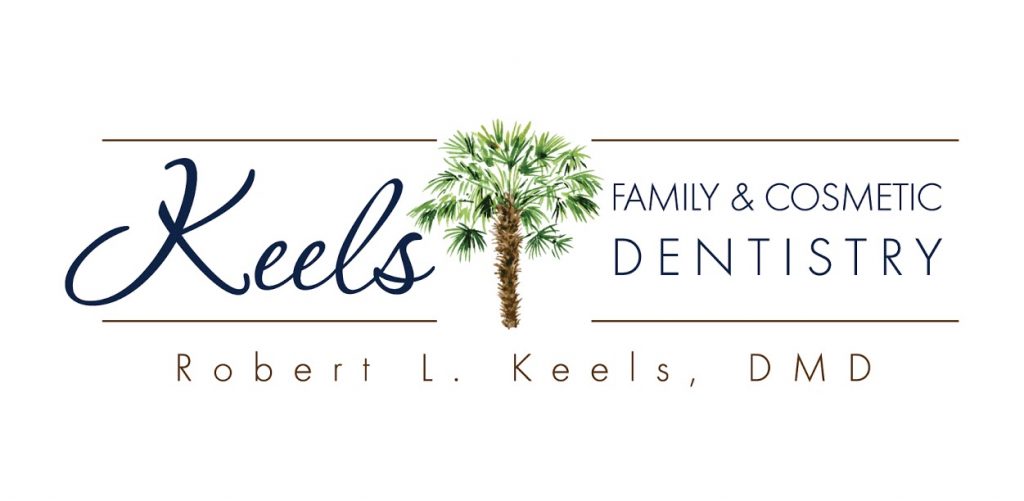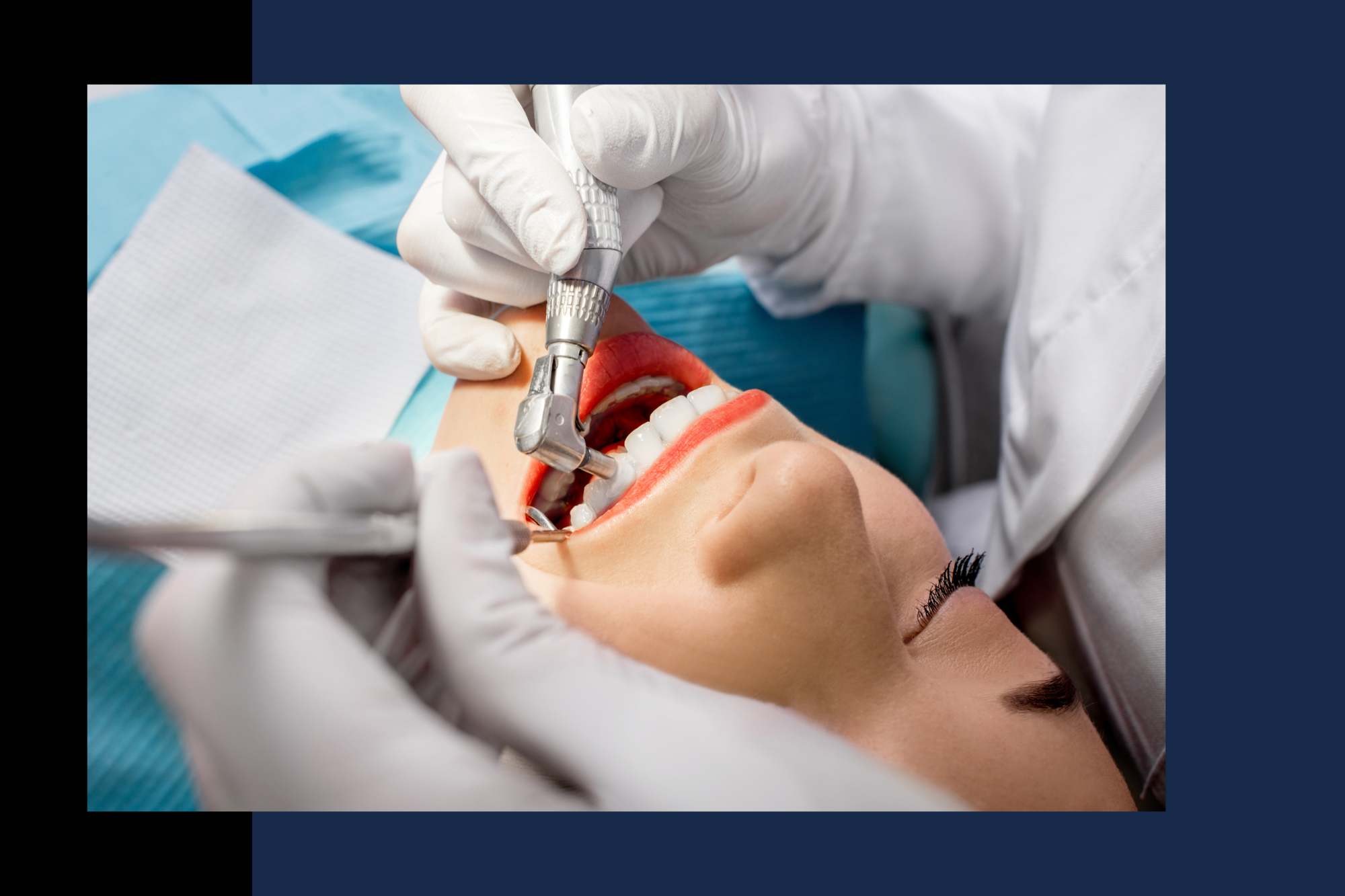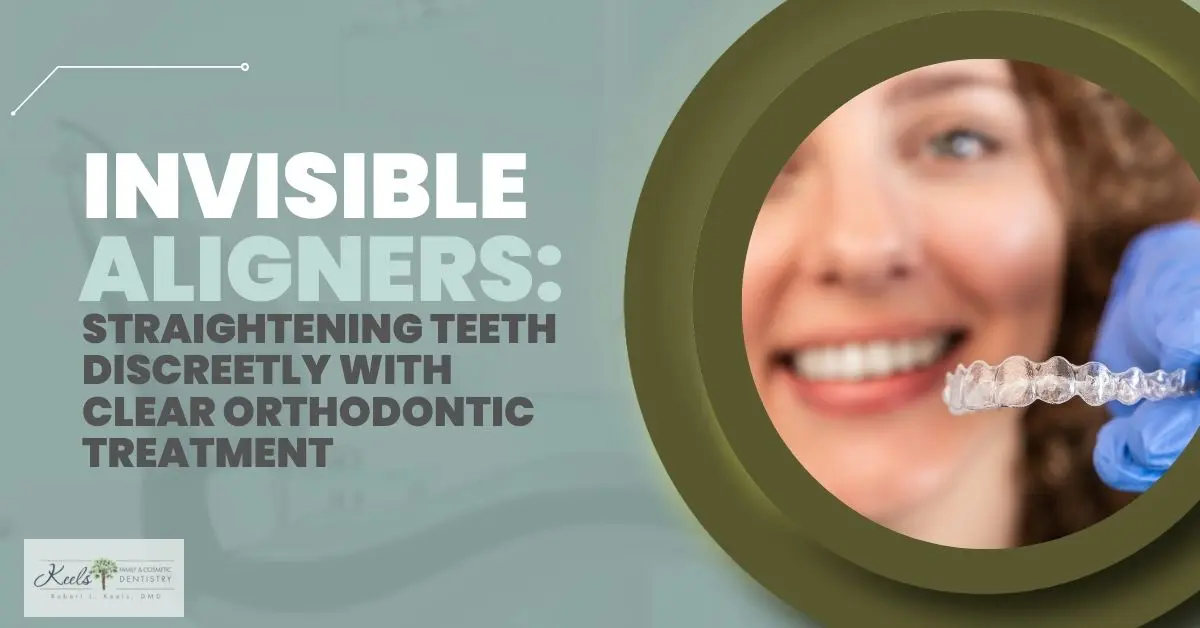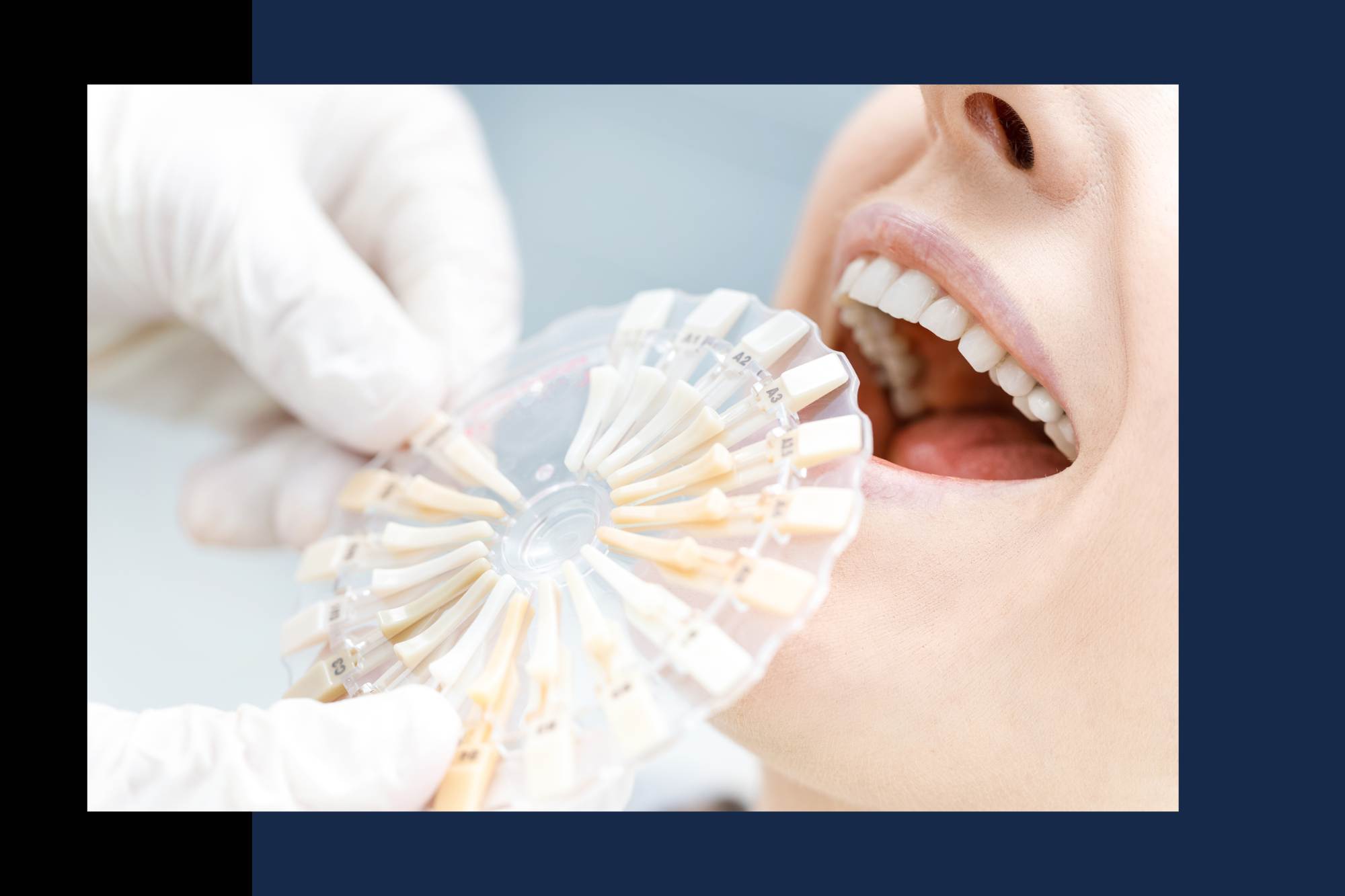Dental Bridge in Duncan, SC
Make Your Teeth Look Perfectly Natural—Get a Dental Bridge Fast At Keels Family!
Dental bridges serve as a dental restoration technique to replace missing teeth. It uses an artificial tooth and crowns on the teeth next to the space created by the missing tooth. The artificial tooth can be attached permanently, or it can be a removable bridge.
What is a Dental Bridge?
A dental bridge is literally a bridge between a gap within your teeth. Therefore the dental restoration of a dental bridge needs to be anchored to the adjacent teeth in order to stay in place. Bridges are different from dental implants. Dental bridges do not replace the dental root like a dental implant does. You can replace up to four teeth with a dental bridge that can be anchored in or can be movable like dentures. There are different types of bridges that depend on the patient’s needs.
What are the Different Types of Dental Bridges?
The three most common are Cantilever Bridges, Maryland Bridges, Resin-bonded Bridges. A cantilever bridge is like a natural tooth supported by adjacent teeth or dental implants. It is intended for people who have lost only two teeth of the same type of tooth. The Maryland bridges have a natural-looking artificial tooth connected to dental crowns on healthy teeth or dental implants. It is used when there are several missing teeth.
Finally, the resin-bonded bridge, also known as Universal Bridge, can serve as an alternative to the traditional bridge. It is usually made of porcelain material that closely resembles a natural tooth’s color and luster.

Do I Need a Dental Bridge?
People who have lost teeth can benefit from dental bridges because they help support chewing, appearance, and speech. Brushing and flossing cannot clean the entire tooth surface of a person who has lost teeth, resulting in tooth decay or gum disease. The space left by a missing tooth can lead to shifting teeth, which eventually can result in the complete loss of remaining teeth. Dental bridges restore the person’s smile and chewing ability. It also offers support to one’s facial muscles and prevents wrinkles around the mouth.
Dental bridges in Duncan SC can benefit those who suffer from chronic diseases such as diabetes and osteoporosis and those who wear removable dentures. In addition, people with compromised immune systems can also benefit from dental bridges because this will improve their health by protecting them from tooth decay, gum disease, and bad breath. Finding the right dental professional that would help you out with dental bridges in Duncan, SC, is not an easy thing to do. Find us here at Keels Family & Cosmetic Dentistry for your local dental bridge expert in Duncan SC. You can call us today for all of your dental bridges!
Am I a candidate for a dental bridge?
Before deciding if a dental bridge is right for you, there are a few factors to consider. First, knowing what kind of dental bridge you need is important. A traditional bridge uses two or more crowns placed on the teeth adjacent to the gap created by the missing tooth and connected with an artificial tooth in between. An implant-supported bridge requires a dental implant to replace the missing tooth root, and the artificial tooth is placed on top.
It is important to know that you should evaluate your overall oral health. Bridges are usually used when there is no more decay or gum disease in the missing tooth area. If you have either of these conditions, it’s important to get them taken care of before considering a bridge.
Do Dental Bridges Look Good?
Dental bridges are a great way to improve the appearance of your smile. By replacing missing teeth, they restore balance and symmetry while also restoring chewing function. The materials used in bridges today are much more natural looking than those from years ago, making them look almost indistinguishable from your natural teeth.
They come in different colors and shades to match your existing teeth, as well as different sizes to fit your arch. You can also have a bridge made that fits perfectly between two teeth, so it looks like one natural tooth is growing there. With proper care and maintenance, dental bridges can last for many years and help you maintain a beautiful smile.
Can I Live Without A Dental Bridge?
Your teeth work together. Nearby teeth can shift into the space if a tooth is missing. Your opposing jaw’s teeth can also migrate up and down to fill the gap. This has the potential to result in the following outcomes.
- Problems with bites
- Problems with chewing
- The increased strain on your teeth and jaw can cause you pain.
- You may be self-conscious about your appearance or your grin.
- Having difficulty chewing your food
There is also a high risk of gum disease and tooth decay. This is because the gap between your teeth leaves room for plaque to build up, eventually leading to more dental problems.
How Long Does A Dental Bridge Last?
On average, most dental bridges can last 10 years. Some factors that will determine the longevity of your bridge are: your oral hygiene routine, your eating habits, or your age and overall health.
If you brush and floss correctly to remove any food debris, avoid constantly eating sticky foods, and regularly visit your dentist, you will likely have a longer-lasting bridge. People who need this type of treatment may want to consider Keels Family & Cosmetic Dentistry in Duncan, SC.
We will ensure that you get the necessary dentist treatment and care to help restore your smile and chewing ability. We offer comprehensive dental procedures and more! Call us today for more info!
What Happens During a Dental Bridge Procedure?
The patient may be given a local anesthetic to ensure comfort during the dental bridge procedure. The dentist will then prepare the abutment teeth by filing them down, ensuring all cavities are filled and any decay is removed.
Next, impressions of the teeth are taken using special materials and equipment so that custom dental bridges can be made for the patient. The impressions are sent to a dental lab where the bridges are fabricated and then returned to the dentist’s office for placement.
The dentist will then check the fit of the bridge before permanently bonding it in place. Once in position, the abutment teeth must be filed down further to support the crowns on either side of the bridge. The patient will then be given a local anesthetic to ensure comfort during the final step.
Finally, the dentist will modify and polish the bridge to look natural in the mouth and match the surrounding teeth. They may also apply special bonding material to keep it securely in place. Once complete, patients can enjoy a restored smile with improved function and aesthetics.
Advantages and Disadvantages of a Dental Bridge
A dental bridge is a common restorative dental procedure used to replace missing teeth by bridging the gap between two natural teeth or dental implants. It consists of one or more artificial teeth (pontics) held in place by dental crowns or abutments attached to the adjacent natural teeth or implants.
Dental bridges offer several advantages and disadvantages, which should be considered when deciding whether this treatment is the right option for your dental needs:
Advantages of Dental Bridges
- Aesthetic Improvement: Dental bridges provide a natural-looking solution for missing teeth, improving the appearance of your smile and facial structure.
- Restored Chewing and Speaking Function: By replacing missing teeth, dental bridges allow you to chew and speak properly, which can enhance your overall quality of life.
- Maintains Facial Structure: A dental bridge helps prevent the collapse of facial muscles and bone loss that may occur when teeth are missing.
- Quick and Non-Invasive Procedure: Getting a dental bridge is generally quicker and less invasive than some other tooth replacement options, like dental implants.
- Cost-Effective: Compared to dental implants, dental bridges tend to be more cost-effective, making them a viable option for some patients with budget constraints.
Disadvantages of Dental Bridges
- Damage to Natural Teeth: To place a dental bridge, the adjacent teeth need to be prepared by removing some enamel to accommodate the crowns. This process may cause irreversible damage to otherwise healthy teeth.
- Risk of Decay and Gum Disease: The space under the pontic and around the crowns can be challenging to clean, increasing the risk of tooth decay and gum disease if proper oral hygiene is not maintained.
- Limited Longevity: While dental bridges can last for many years with proper care, they may need replacement after a decade or so, depending on the materials used and oral hygiene practices.
- Bone Loss in Missing Tooth Area: Unlike dental implants, dental bridges do not stimulate the underlying jawbone, which may lead to bone loss over time.
- Potential for Fracture: Dental bridges, especially those with long spans or unsupported areas, may be prone to fracture or damage due to the forces of chewing and biting.
- Complicated Repair: If a dental bridge becomes damaged, repair can be complex, and in some cases, the entire bridge may need to be replaced.
Ultimately, the decision to get a dental bridge should be made in consultation with your dentist or prosthodontist, who can evaluate your oral health, discuss the best treatment options, and help you weigh the advantages and disadvantages based on your specific circumstances.
In some cases, a dental bridge may be an excellent option for tooth replacement, while in others, alternative treatments like dental implants or removable partial dentures may be more suitable.
Dental Bridges Vs. Crowns
One major difference between dental bridges and crowns is the amount of tooth structure that needs to be removed. A bridge involves grinding down the adjacent teeth, while a crown involves grinding down only the top of the tooth. This means that bridges are considered more invasive than crowns, as they require more preparation of healthy teeth.
Crowns also protect weakened or broken teeth, while bridges are mainly used to replace missing teeth. A crown can support a severely damaged tooth, helping prevent further damage or decay. On the other hand, a bridge is used to fill in a space where a tooth has been lost and will help to maintain the natural shape of the mouth and bite pattern.
Crowns are more expensive than bridges, requiring more work and materials. Bridges are typically made of a combination of porcelain or plastic fused to metal, while crowns can be all-metal or porcelain-fused-to-metal. In some cases, dental bridges and crowns may require multiple visits for proper fitting and installation.
Why Choose Keels Family & Cosmetic Dentistry?
Make An Appointment
At Keels Family & Cosmetic Dentistry, we understand that people choose our practice for a multitude of reasons. Our prime location offers convenience to our valued patients, making it easy to schedule appointments and prioritize their oral health. The trust and satisfaction of our patients, who often refer friends and family, have solidified our reputation as a professional and caring dental office within our community. Our comprehensive services range from cosmetic dentistry to dental care for the entire family, ensuring that we meet the unique needs of every member. We work with various dental insurance plans to make quality care accessible. With flexible scheduling, a warm and welcoming atmosphere, state-of-the-art technology, and a commitment to patient education, we aim to provide not just dental services but also a comfortable and personalized experience. At Keels Family & Cosmetic Dentistry, we prioritize the health and well-being of our patients above all else, fostering a strong personal connection with each individual who walks through our doors.



